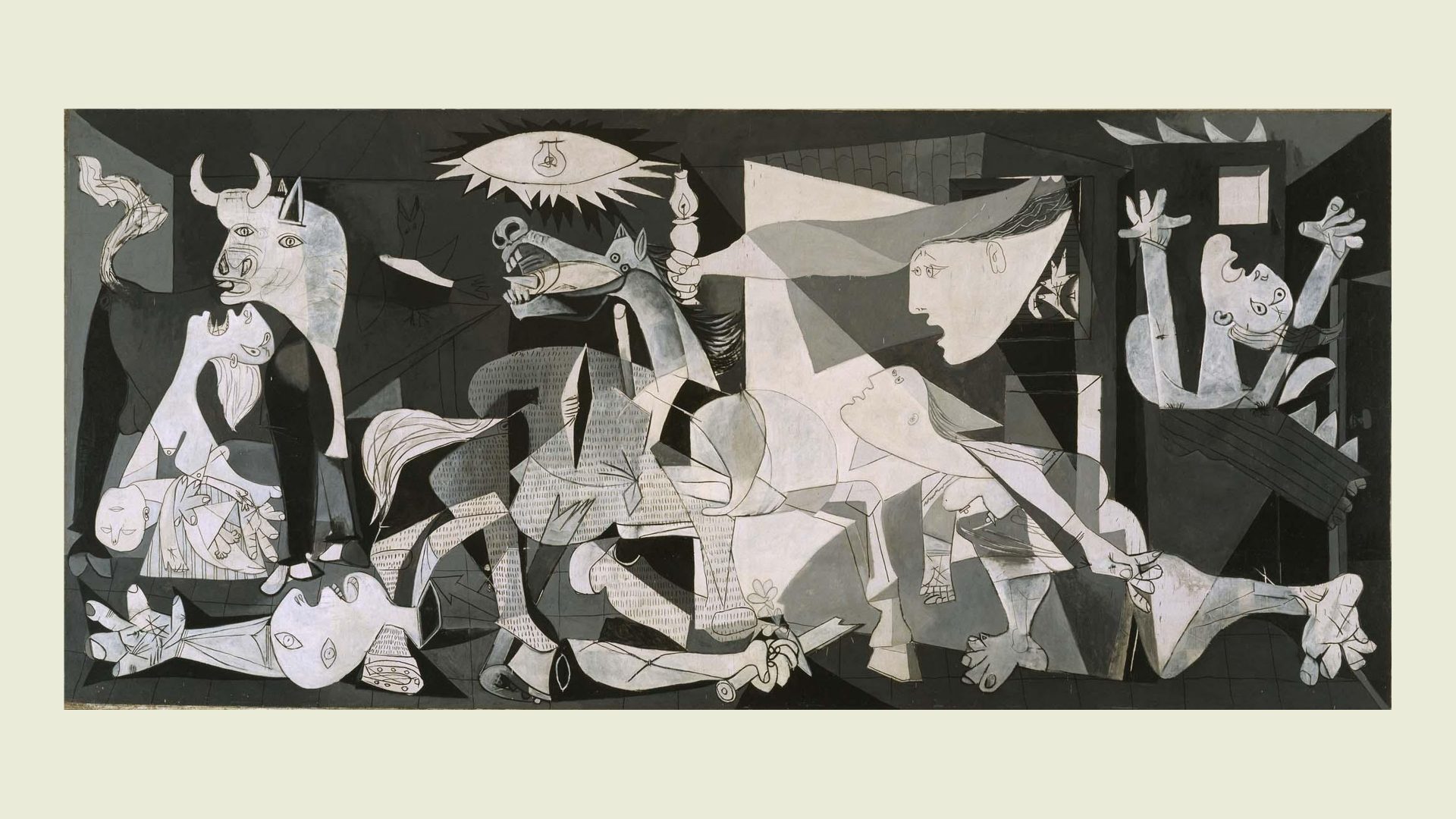In Bilbao’s Kafe Antzokia, a bald man in white trousers and an oversized navy blue shirt is warming up the crowd at a Basque music concert. He jokes with the audience – or at least that’s what I assume he’s doing. He’s speaking Basque.
Suddenly his tone drops, his smile falls away and the laughs disappear. “What’s he saying?” I asked my friend.
Basque, or to give it its proper name, Euskera, is Europe’s oldest living language. It bears little resemblance to its Spanish neighbour. Whereas Spaniards greet one another with “hola”, Basques say “kaixo”. Around here you don’t say “muchas gracias” but “eskerrik asko”. It is a percussive language full of ch, k, and t sounds.
“He’s saying it’s the 86th anniversary of the bombing of Guernica,” my friend whispers back in Spanish.
On April 26, 1937, Nazi and Italian fascist bombs rained down on the unsuspecting Basque town, killing over 100 civilians – perhaps over 1,00. The attack was ordered by Spain’s future dictator Francisco Franco during the Spanish civil war to destroy Republican resolve, and clear the way to Bilbao. This horror became the subject of perhaps Picasso’s greatest masterpiece, which currently hangs in Madrid’s Reina Sofía Museum.
Guernica is just 35km from Bilbao, and last Wednesday was the 86th anniversary of its destruction. The events taking place in Ukraine and Sudan seem to make the date even more poignant.
After taking Bilbao and winning the Civil War, Franco tried to destroy Basque identity, starting with the language. Speaking Basque was prohibited and students with Basque names weren’t allowed to use them. The legacy of this is still felt today. After I first moved to the Basque Country I spoke to a teacher called Amaia – a Basque name – and spoke to her about the period of dictatorship. Eventually she told me her legal name was María. She had been forced to change it to a non-Basque name by the authorities.
Flying the Basque flag (the Ikurrina) was banned and abductions, imprisonment and torture were routinely deployed against the Basque people by fascist forces. And yet Franco could not destroy the language, culture and traditions of the Basque Country.
It was an emotional experience to be immersed in a culture that had only just managed to survive the horrors of war and dictatorship, and on the anniversary of an event designed to destroy its independence.
Iker Allur, the boss of Eingo, a school of Basque music, dance, and tradition proudly introduced his group to the stage. A group of elderly musicians took to the stage, playing tambourines and trikitixas, a Basque version of the accordion.
The next song was enough to silence the crowd – 30 young Basque children came together with trikitixas, tambourines and shakers. During the third song, the musicians abandoned their instruments and jumped onto the stage forming a spinning circle of rotating dance partners in a traditional routine. Seeing three generations laughing and dancing together, it was impossible not to smile.
Back in 2017, 66% of school kids were being educated in Basque, up from approximately 14% in 1984. Knowledge of the language among 10-14 year-olds is now up at 87%. Basque culture is living proof that suppression often has the opposite effect.



